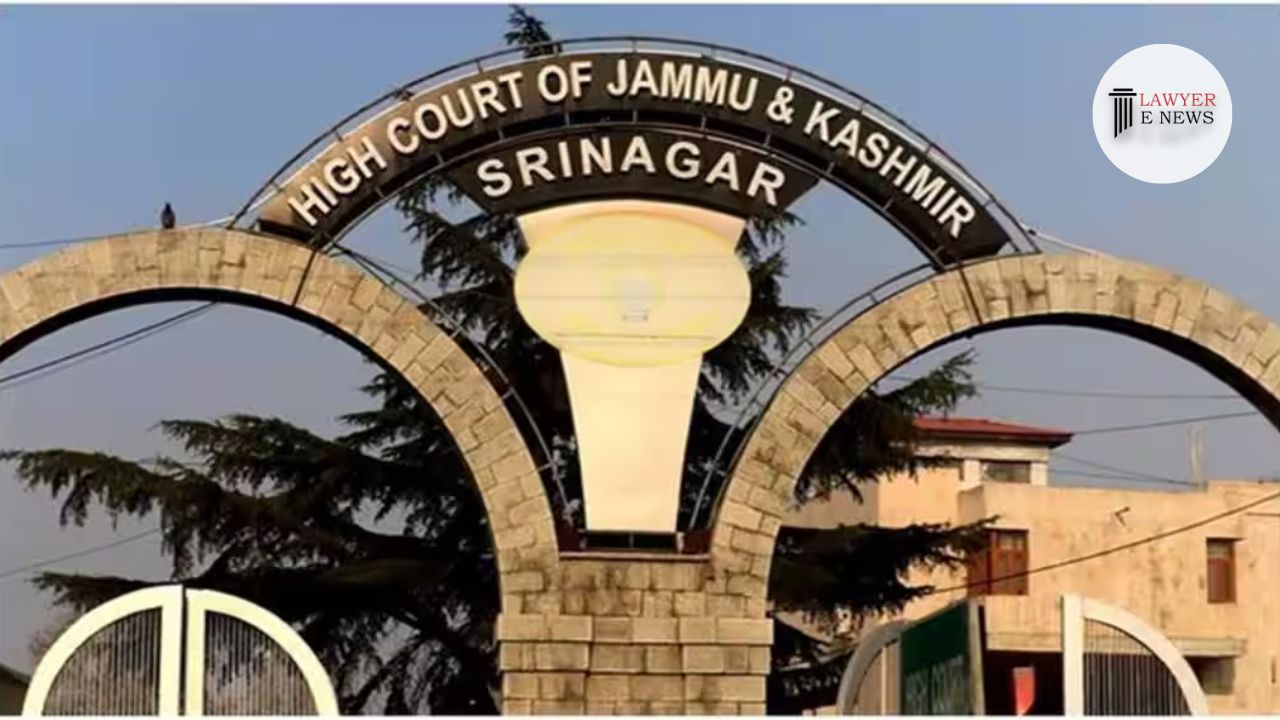-
by Admin
15 February 2026 5:35 AM



The High Court of Jammu & Kashmir and Ladakh has dismissed petitions seeking to quash complaints under Section 138 of the Negotiable Instruments Act, 1881, for dishonor of cheques. The court emphasized that issues regarding the authorization and partnership deeds should be scrutinized during the trial rather than at the quashing stage. The judgment, delivered by Justice Rajnesh Oswal, underlines the necessity of allowing the trial to proceed to resolve disputed facts.
The petitioners, Ajay Gupta & Others, sought the quashing of complaints filed by Ajay Trading Company and Krishna Trading Company, alleging dishonor of cheques issued to the respondents. The primary grounds for the petitions included the absence of a partnership deed and authorization for filing the complaints, and the respondents not holding the requisite licenses under the Money Lenders and Accredited Loan Providers Act.
Credibility of Authorization: The court highlighted that the issue of whether Ajay Gupta had the authority to file the complaints on behalf of the partnership firms should be examined during the trial. “Whether Sh. Ajay Gupta is a partner and has competence to file the complaint under section 138 NI Act, is an issue, which is required to be determined during the course of trial,” the judgment noted. The court cited precedents such as Samrat Shipping Co. (P) Ltd. V. Dolly George and TRL Krosaki Refractories Ltd. V. SMS Asia (P) Ltd., which support the view that authorization disputes should be resolved during trial.
Relevance of Money Lenders Act: Regarding the petitioners’ contention that the respondents lacked registration under the Money Lenders and Accredited Loan Providers Act, the court observed that the nature of the financial support provided was not clearly established as a loan. “The respondent has not pleaded the nature of transaction for which the cheque in question was issued,” Justice Oswal remarked, indicating that this ambiguity further necessitates a trial to ascertain the facts.
The judgment reiterated the principles governing the exercise of inherent powers under Section 482 Cr.P.C., emphasizing that such powers should be exercised sparingly and only in exceptional circumstances. “The inherent powers for quashing complaint at the threshold can be exercised only when the admitted fact or the facts taken in entirety do not constitute any offence but where the facts are hazy and inchoate, the inherent powers cannot be exercised,” the court asserted.
Justice Rajnesh Oswal emphasized, “The petitioner can raise the issue in respect of the competence of Sh. Ajay Gupta to file and prosecute the complaint on behalf of the respondent-partnership firm during the course of trial but cannot seek quashing of the complaint solely on the ground that neither any partnership deed nor authorization has been placed on record.”
The dismissal of the petitions underscores the High Court’s commitment to ensuring that trials are conducted to resolve disputed facts, particularly in cases involving financial transactions under Section 138 of the NI Act. By allowing the complaints to proceed, the court has reinforced the legal framework that mandates thorough examination of evidence and facts during trials. This decision is expected to have significant implications for similar cases, emphasizing the judiciary’s reluctance to quash complaints prematurely.
Date of Decision: 17.05.2024
AJAY GUPTA & ORS.VS AJAY TRADING CO. & KRISHNA TRADING CO
